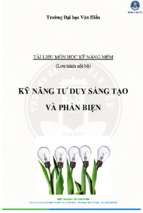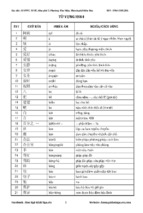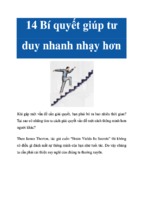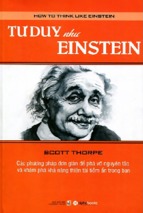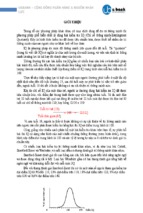Mô tả:
Làm sao để giải thích cho trẻ về Tư duy phản biện
How to Explain Critical Thinking
Skills to Young Children
By Heidi Butkus
www.heidisongs.com
It’s not as hard as you might think!
Hypothesize: Take a really smart guess, based on what you already know.
Example: Why do you think that foxes and wolves always seem to be the bad guys in story books?
Develop a Logical Argument: Tell us why you believe something is true, and tell us more than one
reason why.
Example: What do you think would have happened if the mouse had not decided to sit on the bear’s
nose inside the mitten? Tell me more than one reason why you think so.
Predict: Guess what will happen next.
Example: David just broke a vase with his baseball bat. What do you think is going to happen next?
Cause & Effect: The cause is what started it and the effect is what happened.
Example: Kick a ball towards a stack of blocks so that they fall down. Ask, “What made the
ball move?” (Or, what started the ball moving? That’s the cause.) What happened then? That’s
the effect.
Infer: Look at the picture, and tell me what you think is happening and why.
Example: Show a picture of a broken window next to a baseball bat and ball, and have the children
infer what happened.
Connect the Text to Self: Has anything like this ever happened to you?
Example: The little bird is sad because he does not know who his mother is, and he feels lonely.
Have you ever felt lonely?
Evaluate: Decide whether or not something was a good idea or a bad idea.
Example: The children let the Cat in the Hat in the house when their mom was not home. Was that
a good idea or a bad idea? Why or why not?
Draw a Conclusion: Think about the WHOLE story and then tell me what you think.
Example: Is this story real or make believe? Why do you think so?
Compare & Contrast: Tell me how these things are different. Now tell me how they are the same.
Example: Look at the carrot and the pumpkin. How are they different? How are they the same?
Form an Opinion: How do you feel about this? Do you like it? Why or why not?
Example: Did you like this book? Did you not like this book? Why or why not?
© 2014 Heidi Butkus www.heidisongs.com
- Xem thêm -

